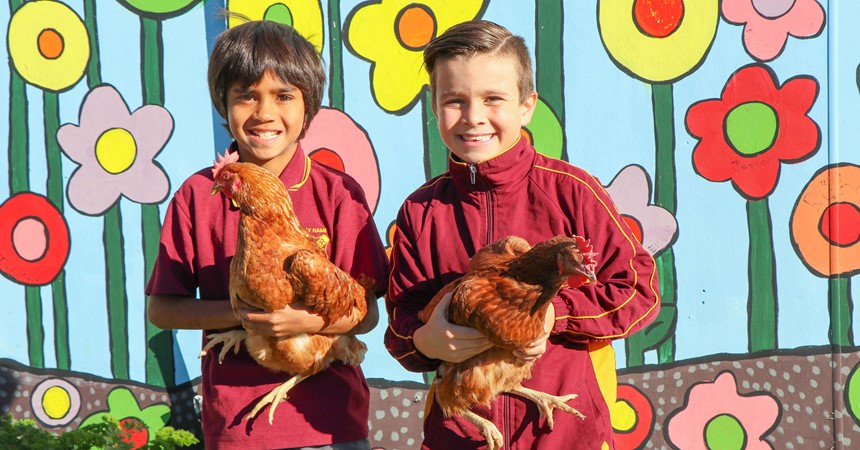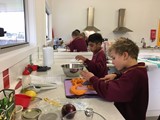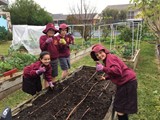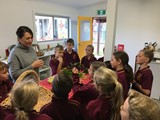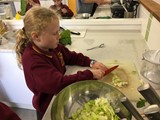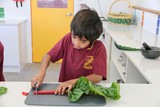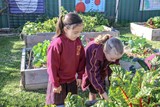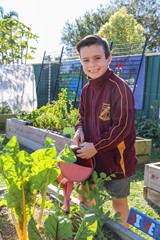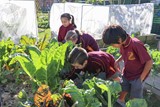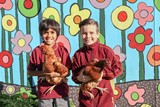The program aims to give students the knowledge, skills and passion to grow, prepare and cook healthy, wholesome food.
The new Kitchen Garden facility at Holy Name features an indoor kitchen space, a luscious vegetable garden and a chook pen, giving students a hands-on learning experience that they can take beyond the classroom and use into the future.
Every fortnight, students from Years 3 to 6 have a 45-minute garden lesson where they learn about the planting, growing and harvesting of plants.
Students are taught the importance of using healthy soil, how to make and use compost and also manage a worm farm and eight chickens.
“They have built a hothouse to plant seeds and have learnt about companion planting and seasonality,” said Teacher Kellie Spinks.
“Some children have even started their own vegetable patch at home, their own worm farms and created their own composting system in their backyard.
“The intention is to equip our students with the skills they require to live a happy and healthy life, as well as educating them on the importance of sustainability.
“We also want to promote the garden as a way of engaging the support of our staff, students, parent body, Parish and wider community.”
The program also helps to improve students’ skills in numeracy, science and geography.
Students at Holy Name have learned how to measure ingredients in the kitchen, work out the area of the garden beds and chicken coop, how to grow bush tucker and have a better understanding of the seasonal cycles in Australia, including Indigenous seasons.
For science, students learn about the effective growing conditions for bananas and have created their own banana circle. They have also learned the scientific names of plants, how to make organic pest control, what grubs and insects are friends and foes for their veggie garden and details of plant life cycles.
Students also learn how to use fresh produce in the kitchen. Once they have harvested crops from the garden, students participate in kitchen lessons where they learn different skills, including knife skills and cooking techniques, this while preparing a five-course meal for all members of the class to enjoy together.
“Many students go home and cook the same recipe for dinner, while some students are now offering to cook dinner for their family on a regular basis,” said Kellie.
“One day we would love to raise native stingless bees in our garden to assist with pollination and so we can collect the honey.”

